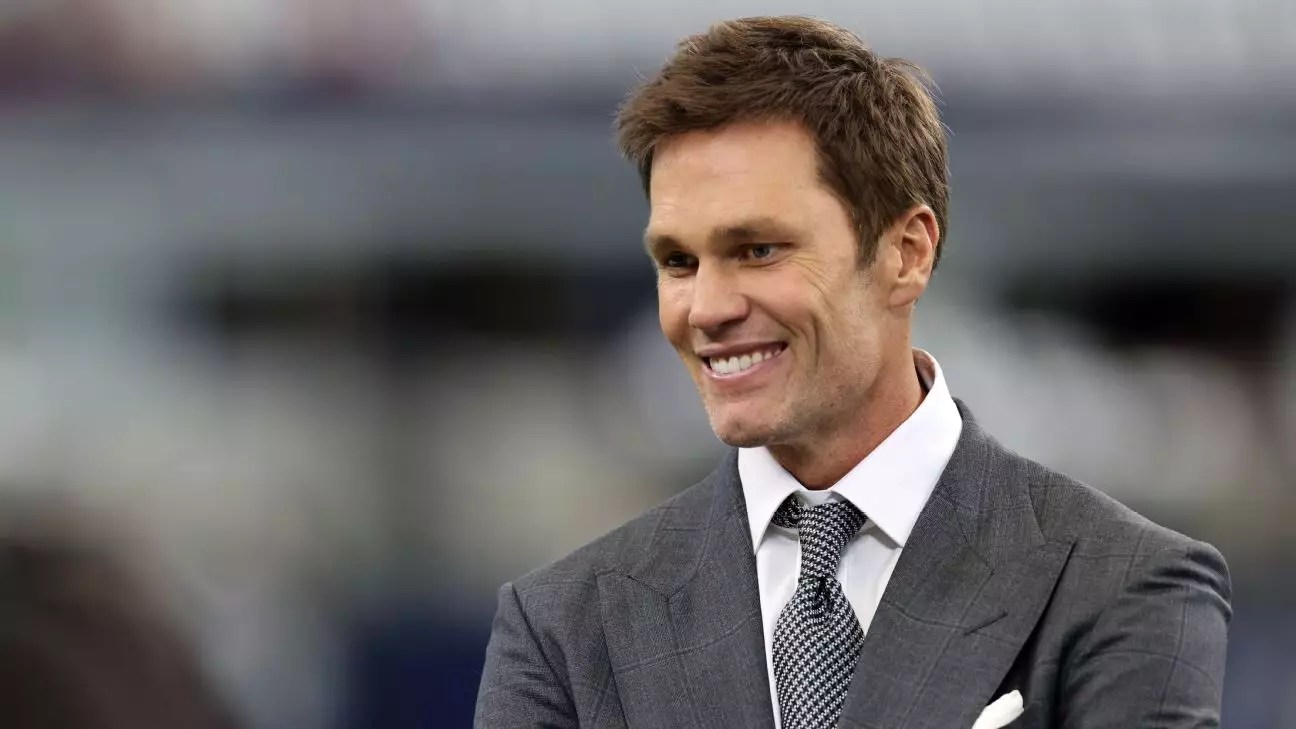In the ever-evolving landscape of professional sports, there’s an ingrained illusion that certain roles—be they analysts, owners, or executives—operate within a neutral, unbiased sphere. This narrative serves to pacify critics and justify behind-the-scenes maneuvering. Yet, a closer scrutiny reveals that such claims are often masks for conflicts of interest that threaten the integrity of the game. When a legendary quarterback like Tom Brady assumes positions both in the broadcast booth and as a part-owner of an NFL team, the lines between impartiality and vested interests blur dangerously. It’s fundamentally disingenuous to claim these dual roles don’t influence perceptions, strategies, or even the flow of information.
The central problem isn’t merely that individuals occupy multiple roles; it’s the societal and institutional acceptance of this overlap as benign or unavoidable. Such arrangements foster an environment where economic interests subtly override the principles of fairness and transparency. The narrative propagated by league officials—that sitting in a coach’s booth as an owner is permissible and not inherently problematic—bolsters a system designed more for spectacle than for honest competition. This unchecked entanglement risks transforming sports into a battleground of influence rather than a field of genuine athletic achievement.
Power Dynamics and Manipulation: A Threat to Fair Competition
Deliberate or not, these conflicts of interest can distort the very essence of fair play. When production meetings, strategic conversations, or internal evaluations occur with the tacit knowledge of influential stakeholders, they inadvertently—if not intentionally—influence outcomes. The concern isn’t merely hypothetical; history offers ample examples where insiders wield their positions to sway results for personal or financial gain. The NFL’s tacit acceptance of Brady’s participation during a game underscores a broader pattern: the league seems resigned to accepting a highly problematic gray zone in conflicts of interest, further eroding public confidence.
This complacency is especially egregious in the context of a league that positions itself as a paragon of competitive integrity. The public is fed narratives that sports are merit-based, objective contests; but these illusions are increasingly undermined by behind-the-scenes power plays. The subtle yet persistent influence of team owners and media personalities with financial stakes quietly reshapes perceptions and strategies, often without scrutiny or accountability. Such practices distort the core value of sports: fairness based on skill, effort, and merit—values that are compromised when information asymmetry favors vested interests.
The Facade of Transparency and the Reality of Exploitative Privilege
While the NFL reassures us that policies are in place to prevent misuse of electronic devices or privileged information, these pretenses often mask deeper issues. The league claims that sitting in a coaches’ booth as an owner does not violate policies, but this perspective ignores the broader implications of influence that extend beyond formal rules. When ownership and broadcasting interests intersect, the boundary becomes porous, and the threat to equitable competition intensifies.
It becomes evident that the supposed safeguards are superficial at best. The real danger lies in the normalization of these conflicts as an accepted part of the sports ecosystem, turning the game into a perpetually manipulated spectacle rather than a straightforward contest. The media—often complicit in maintaining the status quo—serves as a tool to mask these power structures behind a curtain of neutrality. Meanwhile, fans and players are left unwittingly caught in a web of influence that elevates profit and image over the core principles of sport.
Ultimately, the establishment’s rhetoric about transparency and fairness stands as a facade designed to placate a disillusioned audience. When powerful figures leverage their multifaceted roles—whether in broadcasting, ownership, or league administration—the message to the public becomes clear: fairness is a negotiable commodity. It is within this atmosphere of manufactured neutrality that genuine integrity in sports can only be preserved through unwavering skepticism and relentless critique of those who wield disproportionate influence under the guise of neutrality.

